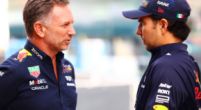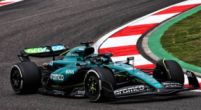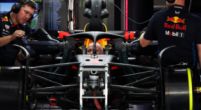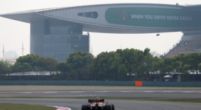Column
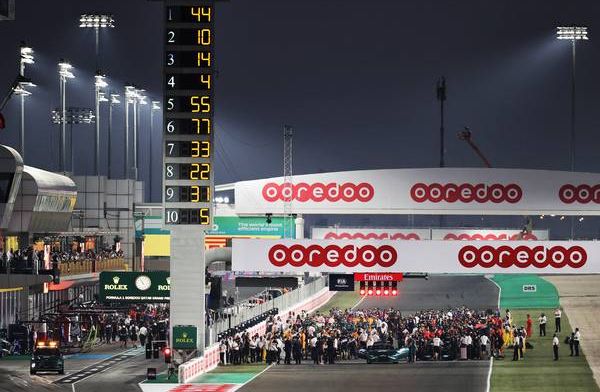
Why Qatar is increasingly involved in big sports events
Sports have become a political tool for countries and governments to promote themselves, leverage political, and economic goals, regenerate, expose local products, local businesses, the local culture, promote tourism, and thus improve their international image. An example is the Emirates Stadium being a stadium in North London but, named after a Gulf State airline. Saudi-owned oil company Aramco is an official partner with Formula 1 and Qatar Airways sponsor PSG as they're owned by Qatar. Sports also serve as a tool for small countries like Qatar to reposition themselves and become more significant political actors.
Qatar for example is hosting the FIFA World Cup in 2022, which is the largest sporting event in the world thus shining a big light on the country. Saudi Arabia hosted its first ever Formula one race in November 2021 which will also improved their international image. There's a question that arises however, why would these nations, specifically Qatar want to host international sports events, especially when they are wealthy enough to survive without international recognition?
The main reason that will be explained in this article is Qatar is using sports as a form of diplomacy to integrate itself into the wider world and gain a better perception. This concept is called Sports Diplomacy.
Sports Diplomacy
Sports Diplomacy is the deliberate, strategic use of sporting events by states to create a favorable international image (Murray, 2020). There are several examples of sports diplomacy over the years e.g., the 1936 Olympic games in Berlin being used to showcase racial supremacy and antisemitism or the 2010 FIFA World Cup in South Africa being used to showcase a united nation post-apartheid.
If you're a football fan as well as an F1 fan, you will have noticed the increase in the number of football clubs owned and invested into by Gulf states. Questions have been raised as to why they have been targeted as well as targeting international sports like F1 with the intention to host their tournaments. The main reason is to diversify the money they earn as oil money is becoming less relevant in the world.
Climate change is becoming more apparent with the effects of global warming. This is causing the world to rely less on oil as a source of energy with the move to renewable energy growing exponentially. This means that nations that relied on oil exportation for income like Qatar have had to look for new ways to get income. A plan was set up in 2008 by the Qatari government to combat this called the Qatar 2030 Vision. Sports investment is part of this vision. The goal of this investment is to make Qatar of sports in the Gulf region with Elite facilities and athletes. This in turn would increase tourism to the nation for sports reasons and increase it's standing in the world. The World Cup being hosted is an example of this.
Sports Washing
Most Gulf states, including Qatar, have a negative perception in the western world. Most of these perceptions are to do with human rights and corruption. These perceptions aren't unfounded however as there's a well-known disregard for LGBTQ+ rights in the Gulf states, Poor worker's rights with the Kafala system which is a legal framework constitutes Private personnel and companies having almost total control over migrant workers' employment and immigration status. This has led to these workers being mistreated and has been compared to modern day slavery. The construction of the stadiums in Qatar for the World Cup has claimed the lives of migrant workers as reported by The Guardian. This feeds into the previous point that the conditions for migrant workers may not be appropriate thus creating a negative perception.
To try and change these perceptions, Qatar has invested heavily into sports with them buying and investing into PSG, investing into broadcasting Ligue 1 with Bein Sports sponsoring Barcelona and Bayern Munich and hosting Moto GP and F1 races to name a few examples. Having Qatar synonymous with successful sports teams and events is a good thing for the nation to bring it closer to the Western world, however it glosses over the problems that have been mentioned and there are arguments that suggest that this is done deliberately to brush aside the allegations of human rights abuses committed by the government. This is called sports washing.
These allegations are a reason why several F1 drivers like Sebastian Vettel Criticized the FIA for organizing an F1 race in Qatar and Lewis Hamilton wore a Rainbow flag design helmet for the race there.
The increase in events being hosted in Qatar isn't a completely bad thing however as it helps to highlight these problems in the nation and this helps to speed up reform as there's more pressure asserted to adapt to a more fair society.
Conclusion
As discussed in the article, Qatar has set out on its vision to invest in sports to increase awareness, perception, and influence of the country. The FIFA World Cup is the biggest and latest example of this strategy coming to fruition. Qatar being at the forefront of sports development in the Gulf is somewhat of a positive as it helps to being the world closer together and helps to broaden the scope of several sports like F1 and Football which are mostly Eurocentric.
The events held there haven't all been held without controversy as there's always been some form of protests with F1 drivers Sebastian Vettel and Lewis Hamilton being vocal about human rights abuses there and several Western nations criticizing FIFA's decision to award Qatar the right to host the FIFA World Cup there given their human rights record.
This article was written by Allan Matovu, who works for the Swedish Edition.





